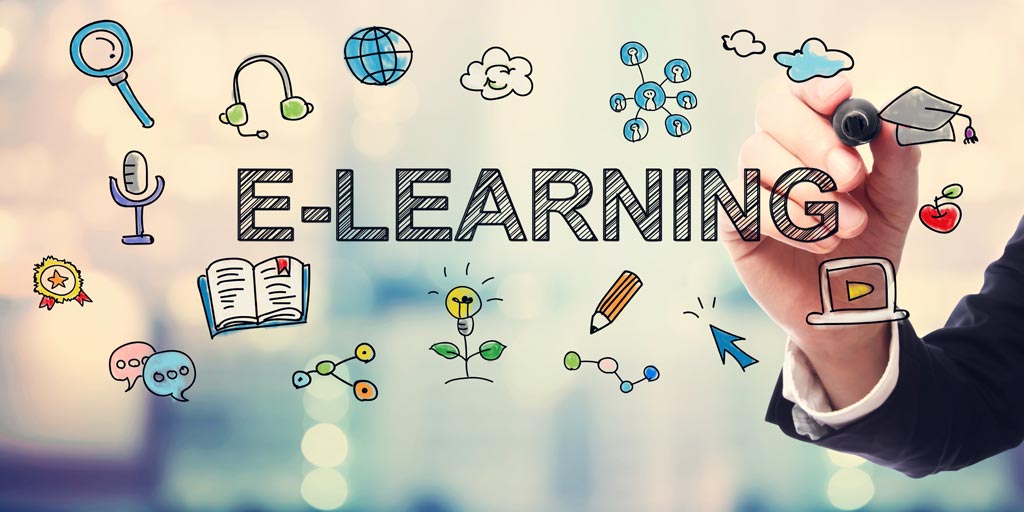In our increasingly global business world, traditional on-the-job training is no longer the go-to in employee education. Learners are spread across the globe and are in need of more dynamic ways to consume educational content from any location, any time of day and through all types of digital reception devices. Employers must have the tools to meet the evolving educational needs of their employees in order to ensure job success and sustainability in the global economy.
Innovative Learning Group (ILG) provides these tools and are experts in human performance technology, instructional design, and project management. ILG works to increase employee performance for Fortune 1000 companies by creating powerful, practical training and performance support solutions that are smart, engaging, and designed specifically to improve business results.
Headquartered in Royal Oak, Michigan, ILG works with a multitude of clients over a variety of different industries, including banking, hospitals and health care, insurance, and retail. ILG’s services include:
- learning/eLearning strategies,
- mobile services,
- curriculum design,
- needs analysis,
- learning design and development,
- performance support and evaluation
Developing and Translating eLearning
eLearning and its availability in a multilingual format is in high demand for businesses seeking out efficient and cost-saving technological alternatives in training. ILG has developed hundreds of eLearning courses since its inception in 2004, and has worked to streamline the process to ensure high quality instructional development for each client. ILG follows a rigorous instructional design process that includes analyzing the target audience, determining learning objectives, outlining content, identifying instructional strategies, and defining the assessment approach.
ILG takes the time to learn about each client’s specific requirements through various levels of project scoping and strategizing. Although each client may have different project requirements, if the client has not completed an analysis phase internally, this is ILG’s starting point. During analysis, ILG identifies the results the client needs from its staff to achieve its organization’s goals. ILG maps those results to the critical performance required to accomplish those goals — providing a clear line of sight from the business objectives to the specific skills and knowledge needed to reach them. Next, ILG determines the most effective, efficient way — through training or other interventions — to bridge the gap between employees’ current skills and those they need to have.
Sometimes clients provide ILG with written English content they would like implemented into a training course, and sometimes scoping new content is part of ILG’s process upfront. Regardless, ILG conducts research to learn more about the client and their industry. Almost always the clients provide ILG various source and reference documents (for example, slides, reference material, business cases, etc.). Other times, ILG is converting from instructor-led training to eLearning. In this case, ILG utilizes the client developed content and redesigns this existing content to work for eLearning.
When a project is approved, the process begins with a start-of-work meeting. In preparation for the start-of-work meeting, ILG creates a draft schedule with the phases, steps, step owner, and general timeframe for each step. Then during the start-of-work meeting, ILG and the client review the draft schedule, and agree on specific dates and meeting times.
When a client requests multilingual versions of their materials, ILG collaborates with translation companies such as Interpro Translation Solutions in order to provide quality multilingual eLearning content when required.
ILG’s responsibilities related to translation of eLearning content include coordinating the pre-translation file preparation, text extraction and post-translation formatting process. Any multilingual audio and voice over synching is also conducted. Once all translations are completed, a final side-by-side linguistic QA is done by a native speaker of the target language. Many times, clients also have an in-country subject matter expert, and a review process is incorporated.
Collaborating with the right translation company is vital to delivering excellent content to ILG’s clients and as such, ILG vets all potential translation companies thoroughly to ensure they meet ILG’s expectations, as well as provide the high quality translations its clients expect. Interpro Translation Solutions’ detailed processes, standards of excellence, translation quality, and willingness to troubleshoot any issue that may arise make them a good partner for eLearning translations.
ILG has managed a significant number of multilingual eLearning projects with courses translated into more than 20 languages, including complicated Asian languages involving double-byte characters. E-Learning designed and programmed in English requires more than simply copying the translated content into the English-version screens. Whether it’s one language or multiple languages, translation affects the design and programming of the course, and it’s important to keep these design issues in mind:
- Ensure the course activities are culturally appropriate.
- Do not use colloquialisms.
- Keep text on each screen to a minimum. This reduces the potential need to add screens as the text grows, which it does with most languages.
- Discuss a style guide with the client. It should include answers to questions about industry term translations. For instance, are Six Sigma and/or LEAN to be translated?
- Do not use text in images/graphics. This reduces cost, as the graphics themselves do not need revision.
With the proper partners, planning, and execution, developing and launching multilingual eLearning can be a simple and rewarding process, and ILG can lead the way.

